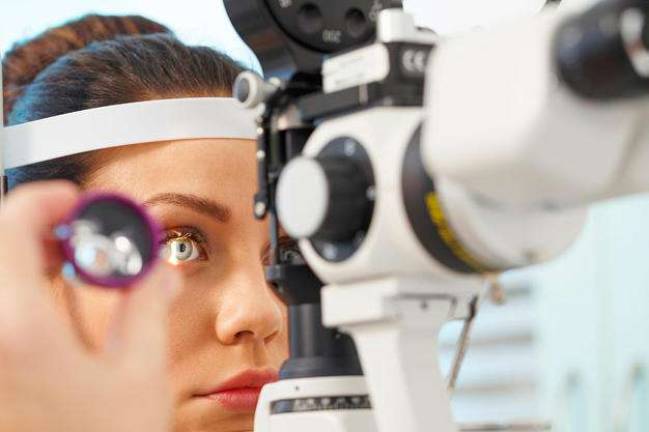Pregnancy sometimes brings vision loss

Many women experience visual changes during pregnancy.
“Pregnancy itself can cause changes in refraction,” says Dr. Kathleen B. Digre, MD, a neuro-ophthalmologist at the University of Utah in Salt Lake City. "These refractive changes are thought to be due in part to progesterone-mediated fluid shifts in the cornea — and these same fluid shifts may lead to complaints of blurred vision and intolerance to contact lenses."
Still, any visual complaint that develops during pregnancy needs a thorough check up.
“The physiologic changes in pregnancy make vascular conditions more frequent,” said Andrew G. Lee, MD, a neuro-ophthalmologist at the Methodist Hospital in Houston.
In addition, he said, some tumors grow during pregnancy because of hormonal shifts.
"These are not caused by pregnancy but will be brought to medical attention during that time," he said.
Three conditions to look forPregnant patients who see neuro-ophthalmologists are most likely to be affected by one of the three following conditions, preeclampsia, eclampsia, or papilledema.
“We must always be on the lookout for severe preeclampsia or eclampsia,” Dr. Digre said. “It’s essential to get a blood pressure check on every pregnant woman who walks in the door. Eclampsia can affect the entire visual."
Papilledema, when seen during pregnancy, is commonly is due to idiopathic intracranial hypertension, a condition due to high pressure in the spaces surrounding the brain and spinal cord. Dr. Lee said most of the pregnant women he sees have this condition.
"The reason for this is that IIH is a condition of young females of child-bearing age, and IIH is associated with weight gain, so you naturally have an overlap between the two conditions," he said.
The American Association of Ophthalmology recommends a partnership between neuro-ophthalmologists and high-risk obstetricians or perinatologists when treating pregnant women with vision problems.
“They’re used to these issues," Dr. Digre. "If you have a partnership, you can work out the best treatment plan. And you can ask them, 'Is this medication going to cause a problem or not?’”
Source: American Academy of Ophthalmology: aao.org